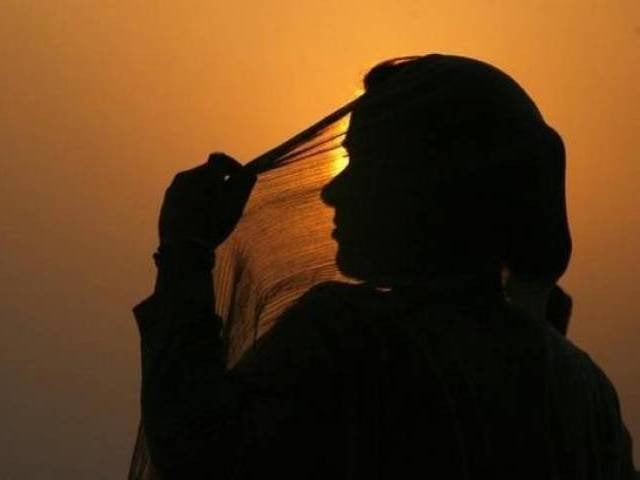Standing up for women
Cultural institutions, beliefs and practices undermine women’s autonomy and contribute to gender-based violence

Cultural institutions, beliefs and practices undermine women’s autonomy and contribute to gender-based violence.
PHOTO: REUTERS
These depressing figures exist despite the existence of a raft of strong legislation focused on women’s rights that has come into force over the past decade.
The Domestic Violence (Prevention and Protection) Act was passed in 2012. The Act prohibits violence in private spaces and mandates a quick resolution of cases within 90 days. Unfortunately, many political forces continue to argue that these laws are un-Islamic and will make men insecure.
According to a USAID report published in 2010, a quarter of all reported cases of gender based violence in 2009, were murders or honor killings. While stove burning were reduced, acid throwing had increased substantially during the period under review. Abduction and kidnapping were the second highest reported incidence of gender-based violence. Reports of rape and gang rape increased by 19 percent in this period while suicide also reached a new high. Little has changed since then. It was only in 2006, through the Protection of Women Act, that Pakistani laws finally separated rape and adultery. But the Act does not restrict the offence of rape to sex outside marriage, which legally makes marital rape an offence.
Thousands protest in 'feminist tidal wave' against sexist violence
Another key passage of legislation was the Protection Against Harassment of Women at the Workplace Act in 2010. Harassment is rampant in Pakistan, and since the law was enacted many more cases have been reported to the authorities. Despite the law, the attitude of the police, lawyers and judges, as well as general public, towards harassment is apathetic at best.
Pakistan is a patriarchal society. It has internalised misogyny to such an extent that people look the other way on incidents of acid throwing. To deal with this problem, in 2011 the government enacted the Acid Control and Acid Crime Prevention Act. While perpetrators can be punished from 14 years to life imprisonment, there is no provision for financial compensation for victims. Nor are there any limitations on the sale of acids, which are freely available.
There are cultural institutions, beliefs and practices that undermine women’s autonomy and contribute to gender-based violence. Marriage practices can disadvantage women, especially when customs such as dowry and bride’s price, Watta Satta and marriage to the Holy Book exist.
After years of advocacy, the Prevention of Anti-Women Practices Act 2011 was passed to protect women’s right to inherit property and to prohibit forced marriages, including to settle disputes. It also protects the right of a woman to dissolve her marriage should her husband falsely accuse her of adultery.
While the Anti-Honour Killing Act 2016 declared murders in the name of family honour a criminal offence and set a tougher penalty than for other instances of murder, the law has failed to prevent such crimes. A legal loophole still enables legal heirs to pardon the murderer if they are sentenced to capital punishment, though such arrangements are at the discretion of the courts.
A step in the right direction has been the Anti-Rape Act of 2016, which provides legal aid to victims and prohibits the disclosure of their identity. Importantly, it also mandates that the police register a First Information Report (FIR) in the presence of a female police officer, as well as conduct a DNA test with the consent of the complainant as a matter of urgency.
While these laws are valuable, argues Dr Rashid, police officials lack appropriate training, knowledge, resources and attitudes to collect evidence, conduct medical examinations and make a sound case for prosecution. They remain reluctant even to register an FIR. As a result, victims’ families are often forced to settle the matter with the perpetrators. In extreme cases, when doubts are raised by the police about the veracity of the rape claim or even assertions that it was a consensual sexual relationship, families face social stigma and are forced to flee their homes for fear of social exclusion. All this has to change.
Published in The Express Tribune, November 26th, 2018.
Like Opinion & Editorial on Facebook, follow @ETOpEd on Twitter to receive all updates on all our daily pieces.














COMMENTS
Comments are moderated and generally will be posted if they are on-topic and not abusive.
For more information, please see our Comments FAQ